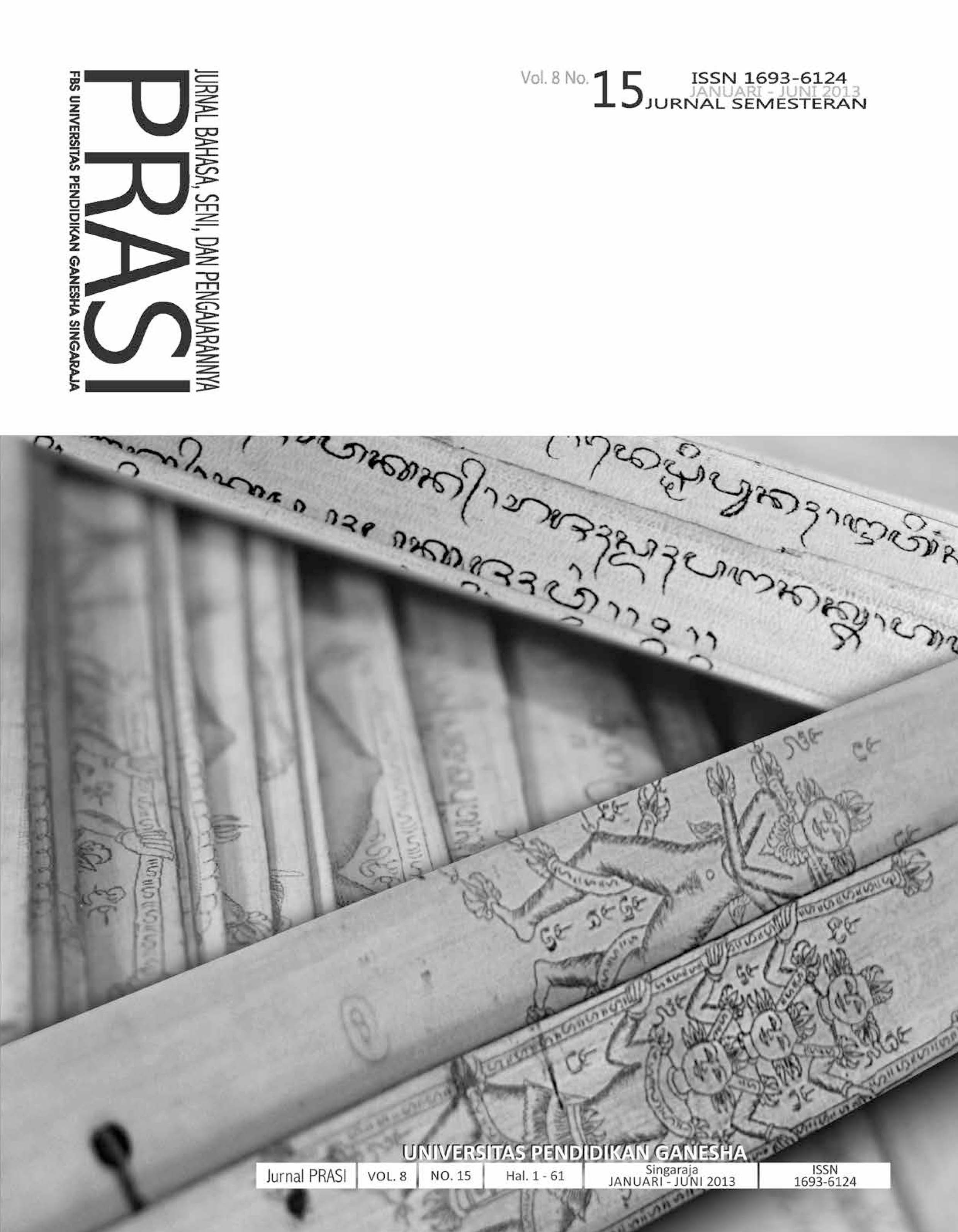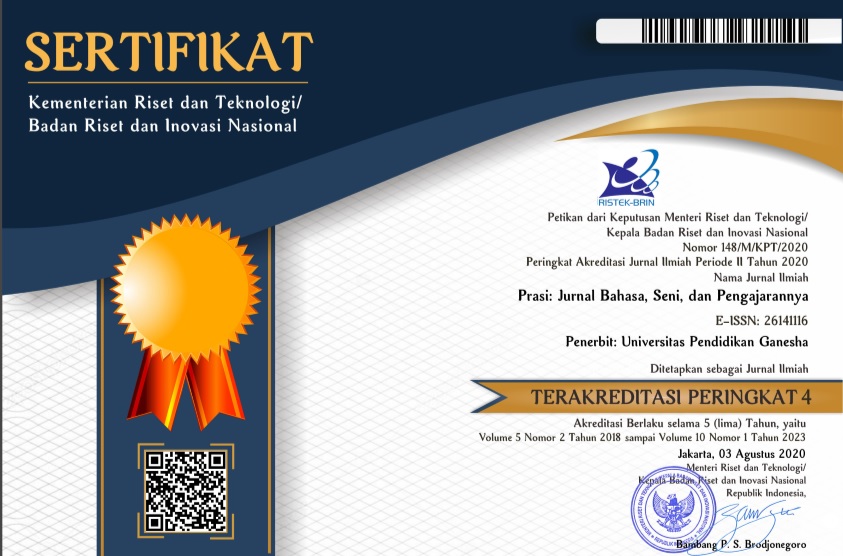REPRESENTASI WANITA DALAM JOSEIGO
DOI:
https://doi.org/10.23887/prasi.v8i15.8949Abstract
The qualitative research is aimed at describing the women representation in Joseigo (women language) which occured in Japanese Language. The data of the research were the special words, including terms, accent, intonation, pronounciation, and grammar which exclusively referred to be used by Japanese Women. The findings show that the formulation of Joseigo is not something that naturally occured or indication of the ideal femininity but a part of government’s manipulation. Joseigo then constructed by media as a way to elevate the
social status of women and as a femininity index.
Downloads
Published
2016-11-21
Issue
Section
Articles
License
Authors who publish with Prasi agree to the following terms:- Authors retain copyright and grant the journal the right of first publication with the work simultaneously licensed under a Creative Commons Attribution License (CC BY-SA 4.0) that allows others to share the work with an acknowledgment of the work's authorship and initial publication in this journal
- Authors are able to enter into separate, additional contractual arrangements for the non-exclusive distribution of the journal's published version of the work (e.g., post it to an institutional repository or publish it in a book), with an acknowledgment of its initial publication in this journal.
- Authors are permitted and encouraged to post their work online (e.g., in institutional repositories or on their website) prior to and during the submission process, as it can lead to productive exchanges, as well as earlier and greater citation of published work. (See The Effect of Open Access)


.png)
.png)









